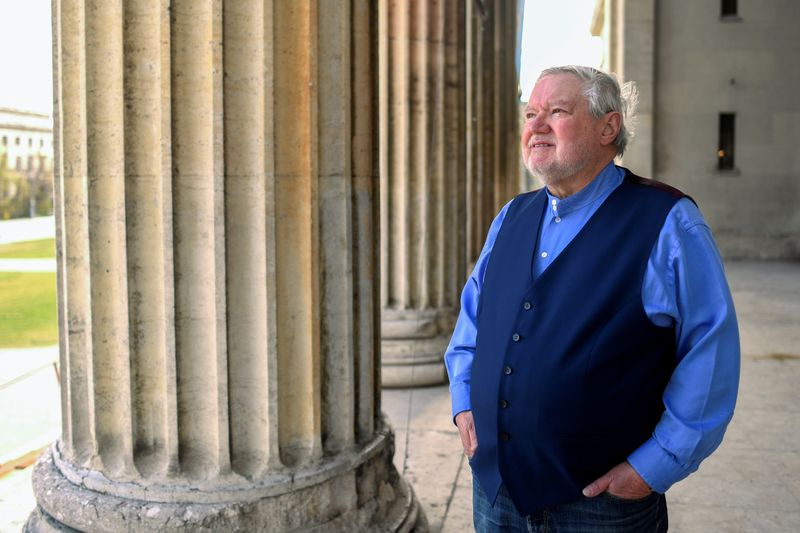By Ayhan Uyanik and Thomas Escritt
MUNICH (Reuters) - Two days after he married his partner of many years, Anselm Bilgri, a former monk and prior at one of Germany's most famous monasteries, learned that the Vatican would not bless relationships like his.
"For me it was almost funny: I and my partner got married on Friday and then on Monday this ban," he said. "It felt almost like a response" to our marriage by the church, the 68-year-old added.
But the ruling in March by the Congregation for the Doctrine of the Faith, the Catholic Church's doctrinal watchdog, that priests could not bless same-sex unions has not been well received by one of the world's richest national churches.
It dismayed many who had hoped Pope Francis would soften the hard line taken on sexual morality by John Paul II and his successor, Germany's Benedict XVI.
Already losing members after years of abuse scandals, the German church has seen departures pick up since the Vatican ruling, according to officials who record church membership.
Germany's bishops struggled to hide their exasperation, saying the German church was reflecting on "the living situation" of people in "successful relationships".
In Cologne, Germany's largest archdiocese, the numbers registering to leave the church for tax purposes picked up noticeably after the ruling.
While the numbers are modest compared to the country's 23 million Catholics, the departure of 400,000 last year has consequences because the Church taxes members pay have made Germany's churches some of the world's wealthiest.
When the Cologne archdiocese first published https://www.reuters.com/article/us-religion-germany-finances-idUSKBN0LN1J820150219 its accounts in 2015, its 3.35 billion euros in assets made it richer than the Vatican - although churches in Germany spend much of their income on institutions such as schools, kindergartens and care homes.
CLERICS' PETITION
Bilgri, who ran the brewery at a Munich monastery and was then prior, or deputy head, of the 900-year-old Andechs Abbey on Bavaria's "Holy Mountain", says he never quite fitted in.
Ordained in 1980 by Joseph Ratzinger, who became Pope Benedict, he recalls ranting to his brother monks at the Church's refusal to modernise.
"When I was reading the paper over breakfast and saw some report from Rome I'd bang the table and say I'm leaving the Church," he said. "It was a joke - but also a sign of disappointment."
He is not alone: hundreds of clerics signed a petition saying they would still bless same-sex unions, in defiance of the Vatican.
"If people love each other they deserve a blessing," says one priest.
Bilgri left the church last year and joined the Old Catholic Church, which emerged in the Netherlands in the 19th century and lets priests marry and allows same-sex relationships.
In the 16th century it was a German, Martin Luther, who broke from Rome and started the Protestant Reformation that weakened for ever the authority of the Pope.

That example looms large for many German Catholics, Bilgri says.